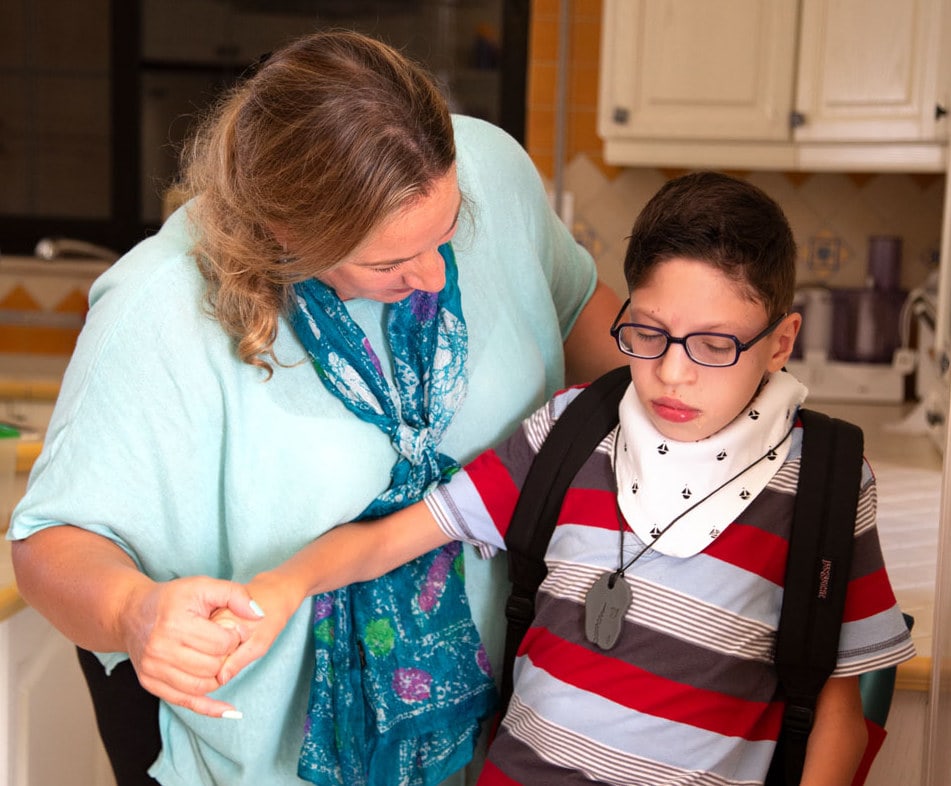
“We want our children to be happy”
Although Jordan has ratified the UN Disability Rights Convention, parents of children with disabilities are often left to fend for themselves. It is not only the lack of medical support that gives them a hard time They also worry about what the future holds for their children. The Sana organisation is trying to remedy the situation of children with disabilities.
Serene Qubain gave birth to three children, but the birth of her youngest son Rakan was more difficult than the previous ones: “He developed differently after birth than my other children when they were his age,” she recalls.
Serene grew up in Jordan’s capital Amman, studied in the U.S. and worked as an independent management consultant in the United Arab Emirates.
Unlike many other people in Jordan, her financial situation allowed her to have her son examined abroad. “We had to leave Jordan to get a diagnosis, to understand what Rakan’s disability was and what we needed to do.” At that time, the doctors in Jordan were not able to provide her with reliable information.
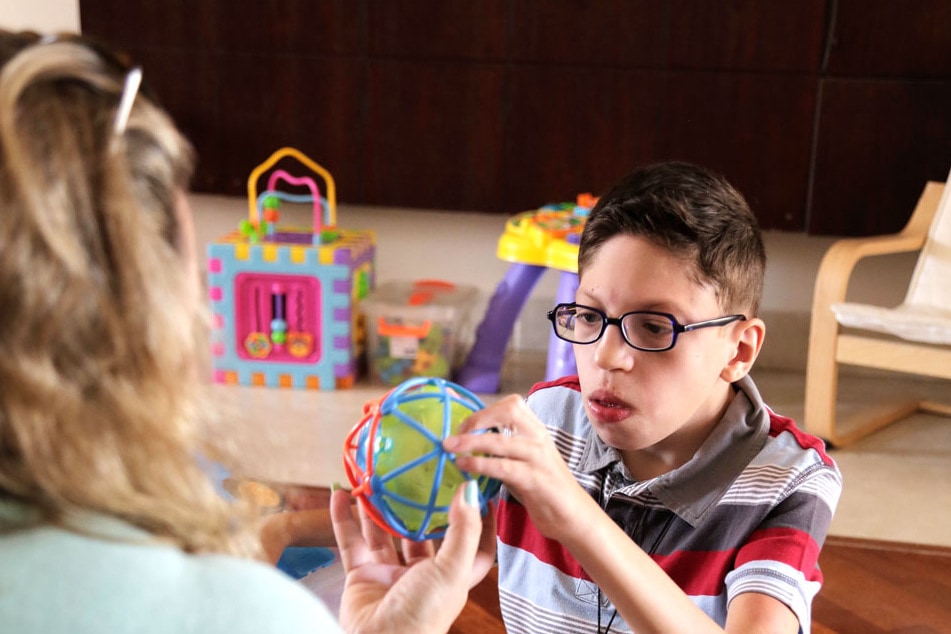
Rakan playing © GIZ / Dina Naser
That’s a problem, Serene says. “Just think of the families who cannot afford a plane ticket.” It could potentially take years before they understand their children’s disabilities. Rakan was three months old when the family received a diagnosis in the United States: Cerebral Palsy (CP), which for Rakan not only leads to physical constraints but also mental impairments.
The diagnosis was accompanied with several treatment suggestions: Speech and occupational therapy as well as physiotherapy. The goal: to give Rakan the opportunity to live his life as independently as possible.
Because there is hardly any information in Arabic, all of this is much more difficult for other parents of children with disabilities in Jordan, Serene says. “I am fluent in English, and I am able to do research online. But people who don’t speak English have a very hard time finding information.”
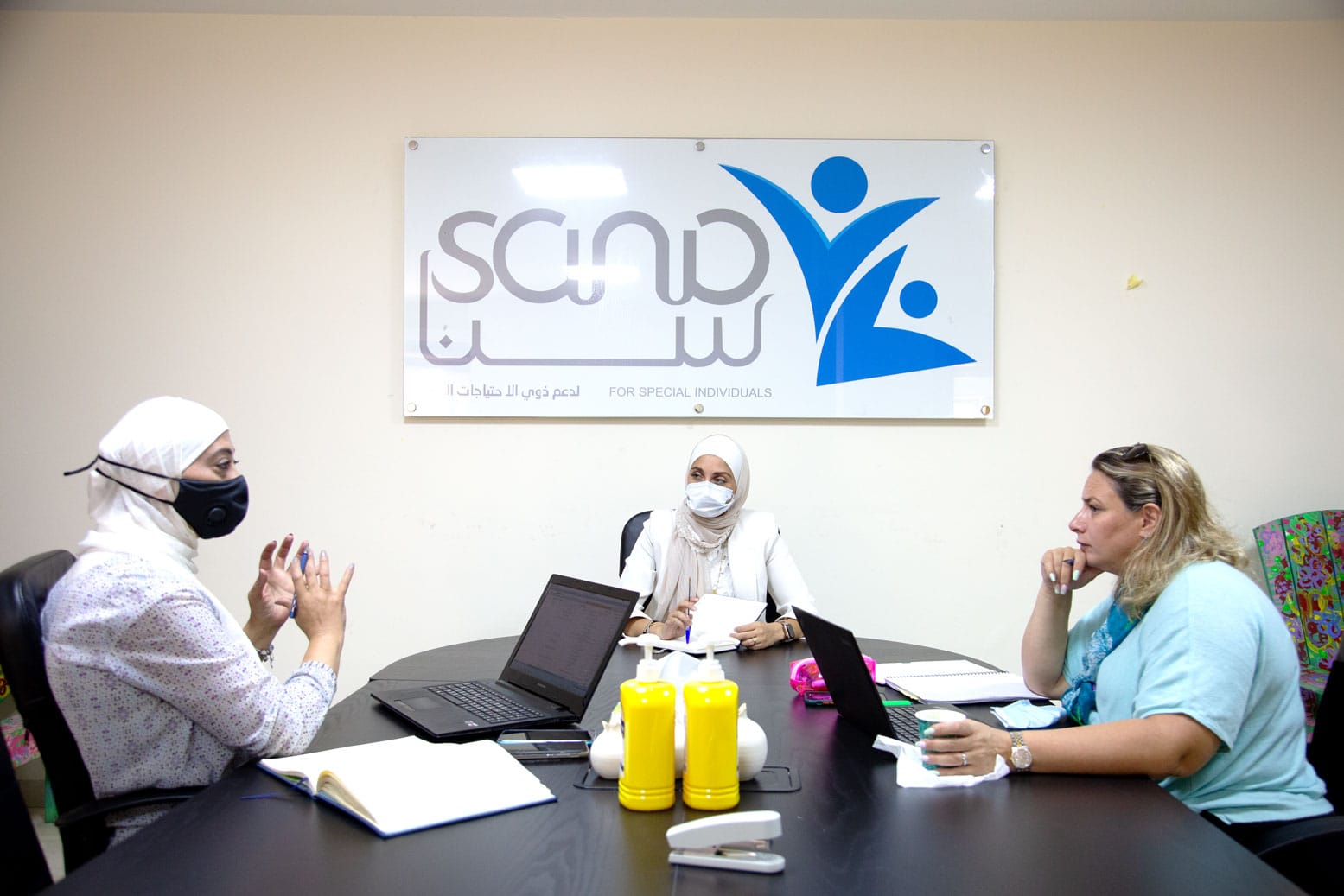
Serene and her colleagues in the office of Sana for Special Individuals © GIZ / Dina Naser
Sana: The right to a fully accessible life for persons with intellectual disabilities
Her son inspired Serene to found Sana for Special Individuals. The non-governmental organisation (NGO) supports parents of children with intellectual disabilities and their relatives.
On the one hand, Sana supports families financially to help with their livelihood and the education of their children. On the other hand, parents can connect with each other and talk about issues that affect them and their children. “These can be topics related to disabilities, but it can also be something different, something that relieves parents from their daily life that constantly revolves around disability. Or parents can share their hardships and experiences in an open support group and learn from each other.”
Initially, these groups met mainly in Amman, but with increasing success, the NGO was able to expand its services. “We are now reaching 600 families with children with intellectual disabilities,” Serene says proudly. The meetings are often similar: “Parents want to meet other parents who have had similar experiences and share the issues they struggle with.”
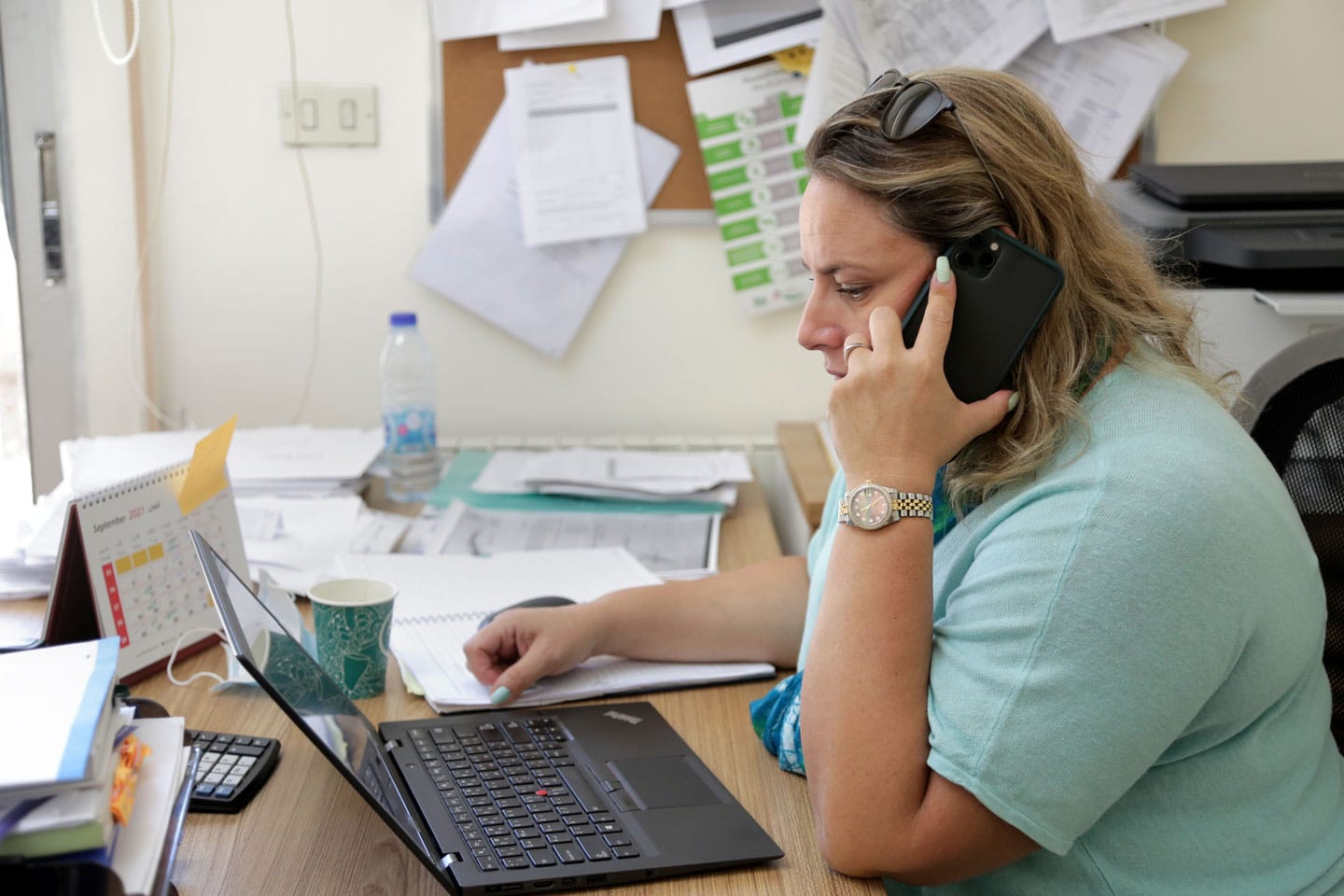
Serene at her work as a counsellor at Sana © GIZ / Dina Naser
Independence can be a given – even at work
One of these issues is the acceptance of persons with disabilities in Jordan. “In many communities, having a child with disabilities is still an absolute taboo. (Some) parents hide their children. Some even fear that children with disabilities could affect their sibling’s chances of getting married. We have to overcome this attitude,” Serene demands.
More acceptance in society – that is her wish for the future. In the meantime, Sana also helps in the field of vocational training. The organisation has launched a programme that provides work for young persons with disabilities. The candidates are supported by a job coach and are gradually trained until they achieve the greatest possible independence.
For most families, this is one of the most pressing concerns: in Jordan, state support for persons with disabilities is still far from being taken for granted. Thus, children with intellectual disabilities often remain dependent on their families for support.
Therefore, independence and securing a livelihood, separate from the parents, are issues of great importance. Of course, this is not only about relieving affected families, but also about persons with disabilities being able to exercise their right to work and their right to participate in social life.
This not only provides the necessary opportunities for themselves and their parents, but it is a chance for society as a whole.
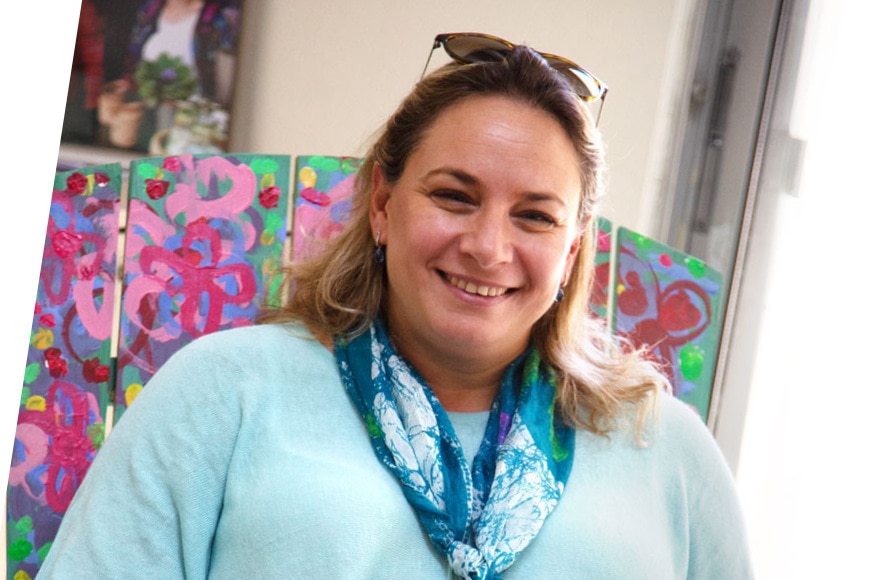
Serene, Sana for Special Individuals © GIZ / Dina Naser
The programme is very well received – both by persons with disabilities and by employers: “Sana’s work programme is attracting a great deal of interest from many employees and also from a wide range of companies.
It gives individuals with disabilities a purpose, a goal for life after school,” Serene explains. Companies, in turn, find much-needed skilled workers in persons with disabilities and value the cooperative nature of inclusive teams and their increased ability to come up with creative and unconventional solutions.
Initiatives such as Sana help them realise this potential. Serene is confident that such programmes will gradually change attitudes towards persons with intellectual disabilities. That’s important to the persons involved and of course to their parents. “In the end,” Serene says, “we are like any other parent. We just want our children to be happy.”